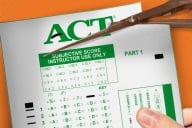You have /5 articles left.
Sign up for a free account or log in.
Private student lenders are not doing enough to help struggling borrowers avoid default, according to a report released Thursday by the Consumer Financial Protection Bureau.
That finding is part of the consumer bureau’s annual analysis of the complaints it received from the public about private student loans. The bureau reported a 38 percent increase in such complaints over the past year.
The most common issue in the approximately 5,300 complaints received in the past year related to borrowers’ lack of repayment options and flexibility when they cannot afford payments, according to Rohit Chopra, the bureau’s student loan ombudsman, who wrote the report.
Part of the problem involves a lack of transparency from private lenders and the companies they hire to process payments on how struggling borrowers can avoid default. But more significantly, Chopra said that lenders are often simply not allowing distressed borrowers to modify their loan or enter into a more flexible repayment plan.
“Too often private student loan providers respond to reasonable requests with rejection and refusal,” Chopra told reporters. While borrowers of federal student loans are often eligible for income-based repayment programs, private student loan customers are not legally entitled to any relief from their lenders.
Chopra said the industry has made little progress in addressing the lack of options that struggling borrowers have, describing the situation as a “serious” problem.
“The public went to extraordinary lengths to assist many student loan industry participants when they faced their own distress, pumping more than $100 billion into the system through the ECASLA program,” Chopra said, referring to the 2008 law aimed at thawing frozen credit markets by having the federal government purchase privately held, federally guaranteed student loan debt. “The fact that many of these same financial institutions are refusing to work with borrowers looking for help just adds insult to injury.”
The private student loan industry pushed back against the CFPB’s report.
Steve Zeisel, general counsel for the Consumer Bankers Association, said that borrower complaints to the CFPB reflected an extremely small share of all private loan borrowers -- less than 0.1 percent.
“While the vast majority of private loans demonstrate ongoing successful repayment, CBA’s members remain committed to providing robust options to the very small subset of private loan customers experiencing sustained financial distress,” he said in a statement. “We are working with the prudential regulators to develop short and long term loan modification programs to provide borrowers with more flexibility, particularly in the early stages of their career.”
Meanwhile, the National Consumer Law Center, which provides legal help to low-income student loan borrowers, praised the bureau’s report.
“Unfortunately the problems highlighted by the CFPB are very common among borrowers that we work with, who generally want to repay their loans but are not given realistic options in times of hardship,” Persis Yu, a lawyer with the center, said in a statement.
Thursday’s report echoes the themes of previous consumer bureau reports that question practices in the private student loan market. The bureau has authority to regulate private student loans as well as certain loan servicing companies. Private student loans have also served as the bureau’s entry point into regulation of the for-profit education industry, notably filing lawsuits this year against two big players: Corinthian Colleges and ITT Educational Services.








